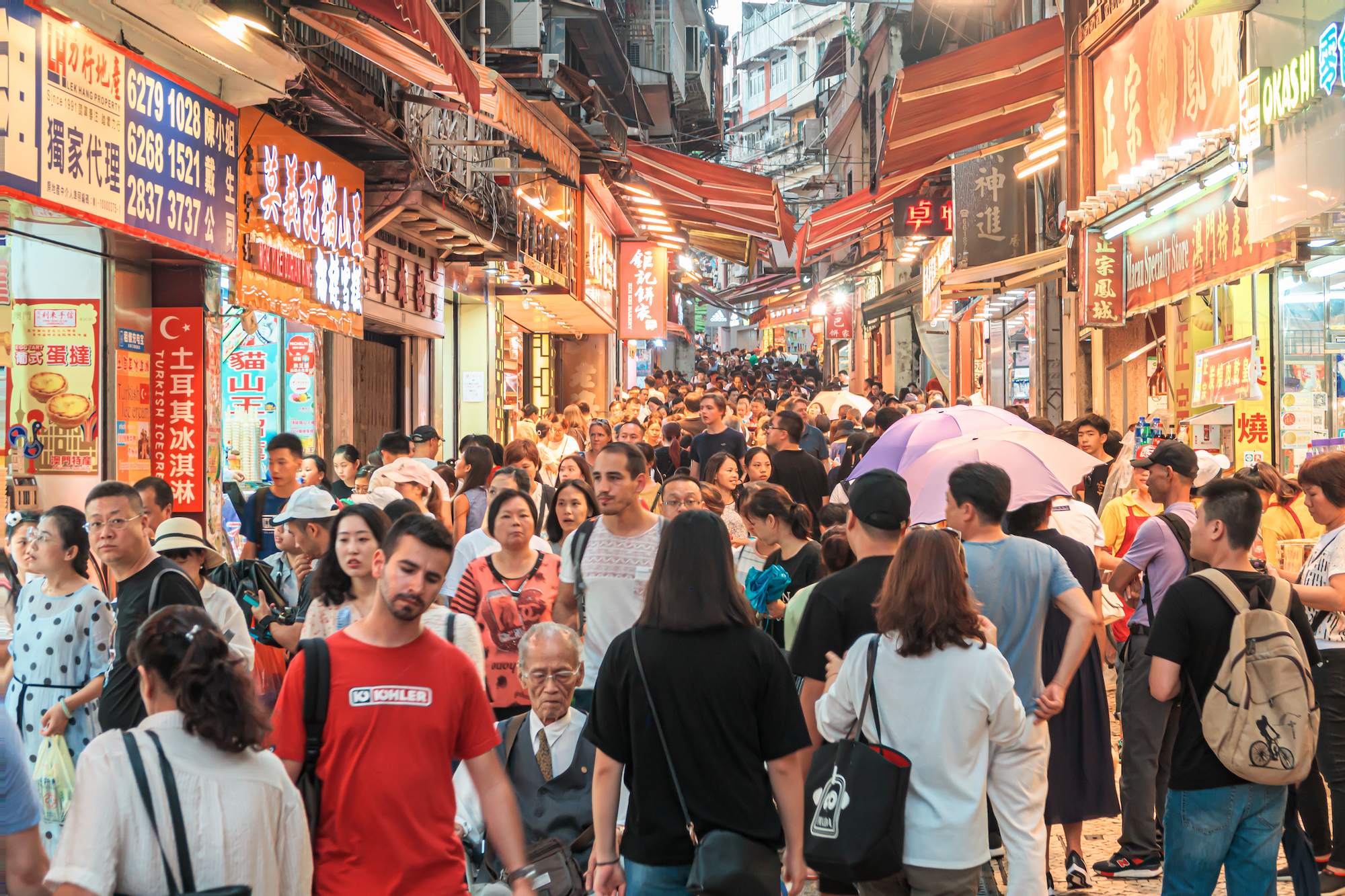This is how many foreign passport holders came to Macao in the first five months of 2023 Link copied
They make up a tiny fraction of the overall total, many are here for less than a day, and hardly any come from Portuguese-speaking countries.

Macao’s tourism authorities say they want to attract more long-haul visitors in a bid to reduce dependence on the mainland Chinese gaming market. But foreign passport holders represented less than four percent of the visitors to Macao during the first five months of 2023, according to data compiled by the Statistics and Census Service.
The figures show that of the 9,436,215 visitors recorded from January to May, 96.2 percent came from mainland China, Hong Kong or Taiwan, leaving just 3.8 percent from other places.
Of those, by far the largest number came from countries that are also the sources of large migrant worker communities in Macao: the Philippines (89,047) and Indonesia (43,241). The great majority of those – 58,131 Philippine citizens and 27,142 Indonesians – were same-day visitors.
In third, fourth and fifth places were South Korea (31,877), the US (21,780), and Thailand (21,598). More than a third of these were day-trippers only, with 9,386 South Koreans, 8,303 Americans and 8,745 Thais choosing not to spend a night in the territory.
Completing the top 10 were holders of Malaysian (20,423), Singaporean (18,195), Japanese (17,123), Indian (13,751) and Canadian (10,532) passports.
[See more: Foreigners make up a tiny fraction of Macao’s visitors and officials want that to change]
Very few Portuguese citizens visited from January to May, in spite of historic and cultural ties and the government’s strenuous efforts to position Macao as the gateway to China for Portuguese speakers. Just 1,658 were recorded – of which 343 were only in Macao for the day. There were only 1,580 visitors from Brazil, the world’s most populous lusophone country, with 664 in Macao for less than 24 hours.
Macao welcomed more visitors from Italy (1,848) and the Netherlands (2,049) during the period, despite the lack of a linguistic connection or obvious business links.
Meanwhile, the territory’s casinos have been running a number of foreigner-only gaming rooms, with concessionaires seeking to exploit tax breaks on revenue generated from overseas punters. While these facilities do attract long-haul visitors, it is theoretically possible for punters residing in the region to enjoy them by entering Macao using a second passport.
An estimated 300,000 residents of Hong Kong – Macao’s second largest source of visitors after mainland China – hold Canadian travel documents. There are also as many as 70,000 Americans in Hong Kong, among them Hong Kong migrants who returned to the city after obtaining US citizenship.